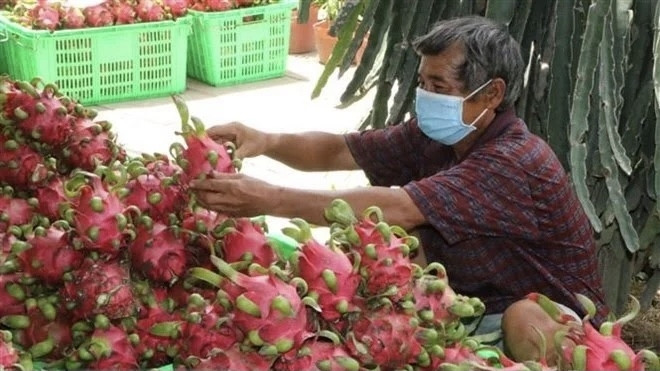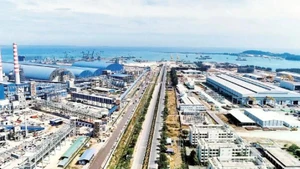The US market is home to 332 million customers with high per capita income, with fruit and vegetables being a rising trend, it said.
Data from the Vietnam Fruit and Vegetable Association showed that fruit and vegetable exports were worth over US$2.06 billion in the first half of this year, a year-on-year increase of 17.4%.
Of these, the shipment of these items to the US enjoyed the highest growth of 132% compared to the same period last year, followed by China and China with 11.6% and 109%.
Nguyen Quoc Toan, Director-General of the General Department for Agricultural Products Processing and Market Development, said Vietnamese fruit and vegetables are enjoying preferential tariffs brought by free trade agreements, including EU-Vietnam Free Trade Agreement and the Comprehensive and Progressive Agreement for Trans-Pacific Partnership.
Six types of fresh Vietnamese fruits are allowed to enter the US market including mango, longan, lychee, dragon fruit, rambutan, and star apple. Other fruits can also be exported in either frozen or processed forms.
Despite having certain advantages, however, the country still faces numerous hurdles because it had to cope with fierce competition from products that are grown in such states as Florida and California or similar items from Mexico, South American and Asian countries.
The high costs for transportation and storage due to geographical distance is causing difficulties for the export of fresh fruits to the US.
The Vietnamese Trade Office in the US suggested local enterprises coordinate with US counterparts for a flexible payment method to increase exports to the market. They were also urged to consider pouring capital into cold storage to ensure the quality of fresh fruits as well as setting up a large-scale distribution centre for Vietnamese goods at a large port on the West Coast, it said, saying that this would help reduce costs and help make businesses more proactive in selling the products.
It is necessary for Vietnamese enterprises to continue approaching large distribution chains, aiming to provide organic and processed products to meet the demand of the US market, the office said.
















